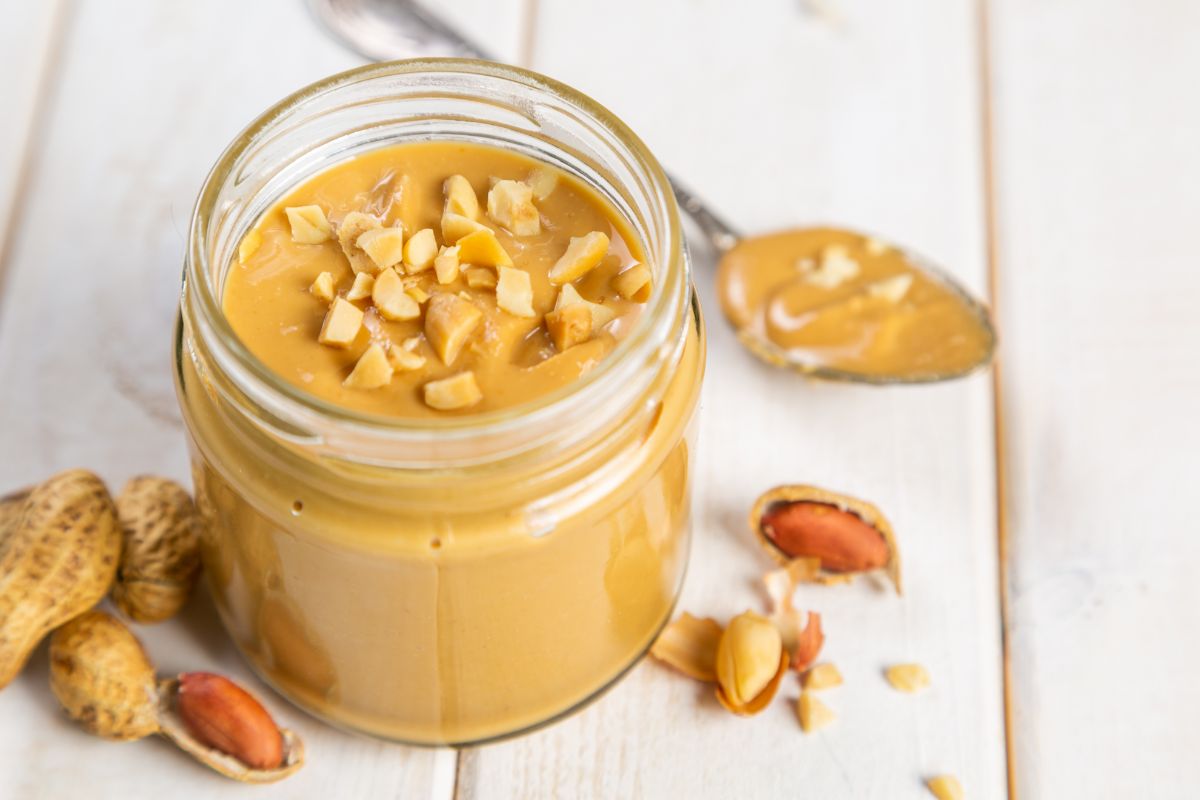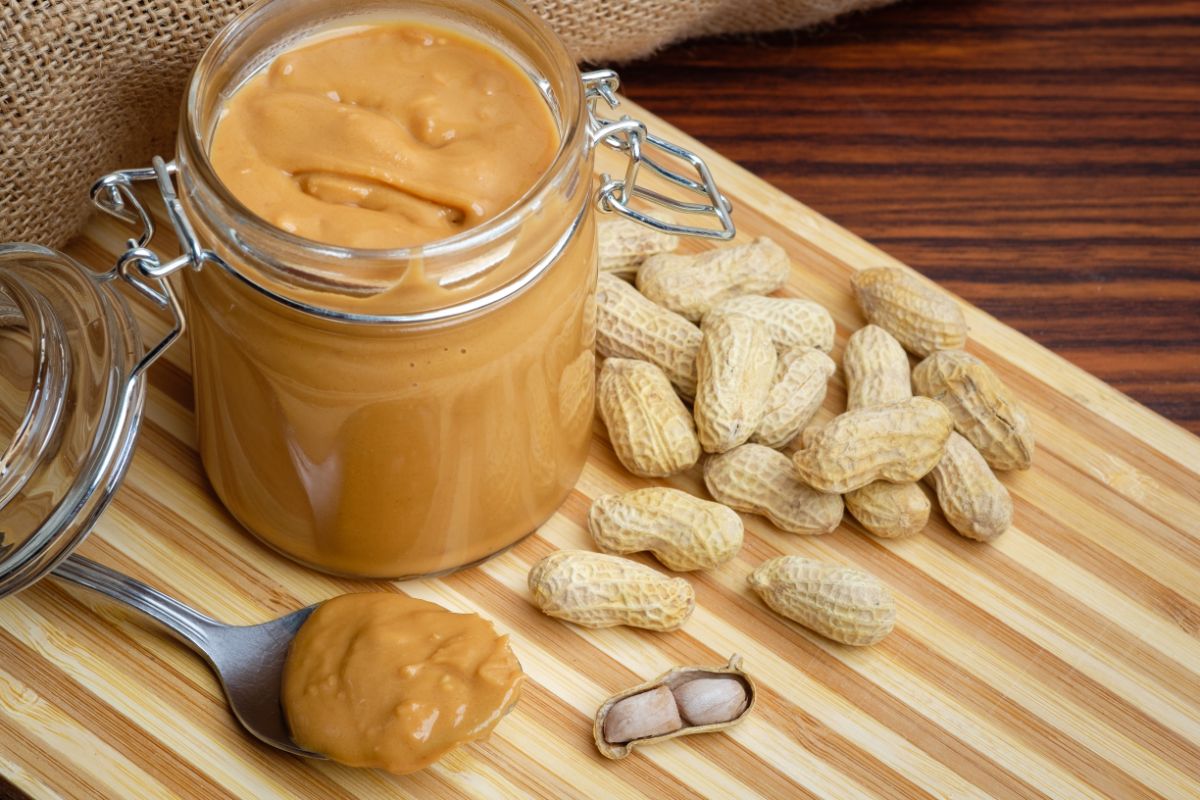Is Peanut Butter Low Fodmap?
The acronym fodmap stands for Fermentable Oligosaccharides Disaccharides Monosaccharides Polyols.
These are carbohydrates found naturally in food that cause gas, bloating, diarrhea, and pain.
They include fructose, lactose, fructans, galactooligosaccharides, polydextrose, sorbitol, mannitol, and xylitol.
Foods containing these ingredients are often referred to as FODMAPs because they are thought to trigger gastrointestinal problems in people with irritable bowel syndrome (IBS).
To help alleviate symptoms, you must eliminate FODMAPs from your diet. This includes dairy, wheat, beans, and many fruits and veggies.
For example, bananas contain large amounts of FODMAPs, while apples do not. What about foods such as peanuts?
Peanuts are super delicious, nutritious, versatile, and easy to find.
But did you know that some brands of peanut butter contain ingredients that could cause digestive issues for people with irritable bowel syndrome (IBS)?
The good news is that many popular brands of peanut butter are now labeled “low FODMAP,” meaning they don’t contain high fructose corn syrup (HFCS), artificial flavors, colors, preservatives, or hydrogenated oils.
This makes them safe for anyone with IBS or celiac disease.
Is there anything else I should look for when buying peanut butter? Let’s take a closer look.
Best Peanut Butter
There are different types of peanut butter out there, some contain added sugar and preservatives, while others are just plain old peanut butter.
The most “natural“ peanut butter is literally blended together from peanuts and nothing else.
These include Kirkland peanut butter, Trader Joe’s Natural Peanut Butter, and Jif Natural Peanut Butter.
They typically don’t contain added ingredients like salt, sweeteners, stabilizers, emulsifiers, or artificial flavors.
Other natural peanut butter might still contain some salt, though. For example, Skippy Natural Peanut Butter contains 3 grams of sodium per tablespoon.
This is about half the amount found in regular peanut butter.
Most nuts, aside from pistachios, are low in Fructo-oligosaccharides, Disaccharides, Monosaccharides, And Polyols (FODMAPs).
That includes brazils, macadamias, and almonds, among others.
That doesn’t mean you can eat them without restriction. However, it does mean that they’re likely safe to consume.
Low Fodmap Peanut Butter
Let’s look at 3 peanut butter brands:
- Trader Joe’s Natural All Natural Peanut Butter – This is a great option for anyone looking for a natural peanut butter that doesn’t contain any artificial flavors or sweeteners. Plus, it contains no hydrogenated oils, trans fats, or preservatives.
- Whole Foods 365 Organic Creamy Peanut Butter – This brand uses only natural ingredients, including sunflower oil and salt. It’s also gluten-free, vegan, dairy-free, soy-free, and egg-free.
- Earth Balance Vegan Spread – This brand is certified kosher and vegan-friendly. It contains no hydrogenated oils or animal products. It does contain palm oil, though, so keep that in mind.
Including Peanut Butter In Dietary Plan
The Food and Drug Administration (FDA) recommends that adults with IBS limit themselves to consuming no more than 28.3 grams of peanuts per day.
However, since peanut butter itself isn’t considered a food, you don’t have to count every single gram of peanut butter you consume.
Instead, you can simply divide the total amount of peanut butter you eat into four servings.
If you want to make sure you aren’t overdoing it, you can always check out the nutritional information on the label.
You can find plenty of recipes online that include peanut butter.
Some of the most popular ones include adding peanut butter to oatmeal, making sandwiches, baking cookies, and even making ice cream.
The key to sticking to any dietary plan is to give yourself options, especially when it comes to food.
If you’re trying to cut down on gluten, sugar, dairy, or anything else, it helps to know what foods you can eat and enjoy without feeling like you’ve given up too much.
Benefits Of Low Fodmap Diet
The low FODMAP diet has been around since 2006, but it wasn’t until 2016 that researchers began looking into how it might benefit people with Irritable Bowel Syndrome (IBS) and Inflammatory Bowel Disease (IBD).
In 2017, a study published in the journal Gastroenterology looked at the effect of the low FODMAP dietary intervention on patients with IBS.
They found that over 90% of participants reported improvements in symptoms within one month of starting the diet.
A second study, published in 2018 in the Journal of Clinical Gastroenterology, looked at the effects of the low FODMAP diet on children with Crohn’s disease.
After six months on the diet, 70% of participants had improved.
Finally, a third study, published in the same issue of JGastroenterol, examined the impact of the low FODMAP diet on adults with ulcerative colitis.
Over half of the participants experienced significant improvement in their symptoms after just four weeks.
How The Diet Works
The low FODMAP diet is a three-step process that eliminates certain types of carbohydrates from your diet.
These include fructose, fructans, galacto-, manno-, xylo-, and polyols.
The goal is to eliminate these problematic foods and allow your digestive system to heal.
If you follow the plan properly, you should start feeling better within a few weeks.
Low Fodmap And Weight Loss
As well as being good for the gut the low FODMAP diet is one of many diets that are popular among those looking to shed pounds.
However, there are concerns about whether it actually supports weight loss.
A study published in Nutrients found that while participants lost weight during the trial, it wasn’t because of the low FODMAP diet.

Instead, it was likely due to inadequate calories.
Researchers looked at data from three studies involving over 500 overweight adults. They compared how much weight each participant lost over four weeks.
While some people did lose weight, others didn’t.
Those who had lower body mass indexes (BMIs) at the beginning of the trials tended to lose less weight.
In addition, researchers found that those who followed the low FODMAP plan gained more weight than those who ate normal food.
Explore Also:
Creativehouseblog
Dietsheriff
Gigasecurehome
Experts recommend that anyone interested in trying the low FODMAP approach speak to their doctor, who can help them find a suitable diet plan.
Final Thoughts
The Fodmap diet is a way of eating that focuses on eliminating specific types of carbohydrates from your daily menu.
It’s designed to improve digestion and reduce inflammation.
There are no scientific studies proving its effectiveness for treating IBD or other gastrointestinal conditions although there is anecdotal evidence.
So, if you suffer from IBS or another condition, it may be worth giving this diet a try and thankfully the glorious peanut can be included..




![Cycling Probiotics vs Continuous Use Weighing Benefits and Drawbacks[1]](https://mycleanseplan.com/wp-content/uploads/2025/10/Cycling_Probiotics_vs_Continuous_Use__Weighing_Benefits_and_Drawbacks1-768x448.jpg)


